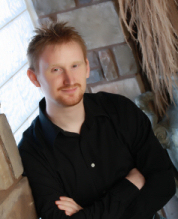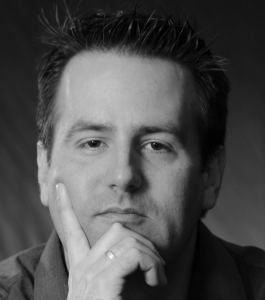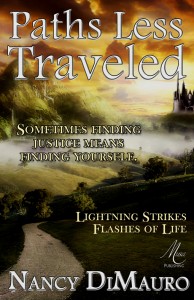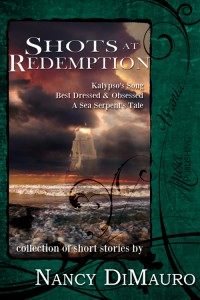
Guest Post from David Dalglish
In Christmas ’09 I bought my wife a Kindle as a present, which we ended up sharing. It took less than a week to realize that little e-reader was something special. Together we were reading more books than we had in months, and buying far, far more than in years. I felt like I’d stumbled upon the iPod just before its sales went insane, and mentioned to my wife how awesome it’d be if I could get in before it really took off. At the time, I was speaking out of wish fulfillment more than anything, but my wife went investigating, and realized I could start self-publishing on the Kindle without any monthly fees, upfront costs, etc.
Now at the time, I had a very simple mindset: self-publishing equals loss of money, and spectacular failure. In college I’d taken plenty of Creative Writing classes, and my favorite teacher had a single day each semester devoted to discussing the pure business of publishing. I still remember what she said: self-publishing meant the end of your career as a writer. You’d never be taken seriously again, because self-publishing was the route of the desperate, and those unwilling to put in the time and effort to get published traditionally.
I bought into this completely. I really did. And to be fair to her, much of what she said was true, particularly when she said it. When my wife showed me the option to self-publish on Amazon, I had, deep down, given up on a traditional deal. Everything I could find, from agents to publishers, basically said what I wrote wouldn’t sell. If you had elves, or orcs, disguise them with new names or consider yourself dead in the water. So trying to shop a series titled The Half-Orcs, well . . . yeah. So part of me was giving up, waving goodbye to a world of agents, query letters, minimum/maximum word counts, and the like. It was terrifying.
On the other hand, I still firmly believed two things. One, I could tell a story that’d entertain readers out there; those who grew up with Dragonlance and Drizzt. Two, the Kindle was going to be huge. I decided if I was going to do this, I’d go all out.
I scoured deviantart for covers (because at the time, you could point out 99% of self-published authors just by their cover, and I didn’t want to be one of them). I lucked out insanely to find Peter Ortiz, who has now done twelve book covers for me.
In a mad dash I edited, edited, rewrote, and then uploaded Weight of Blood for 99 cents. I basically tried to outrun my doubt and fear, because I knew if I delayed I would eventually wimp out. So on sale at Amazon went my first book. I figured fifty sales a month would be fantastic. Heck, on the first day that I sold five copies, I called and told my brother, all ecstatic.
“So you don’t know any of those five people?” he asked me.
“No! I don’t!”
“That’s awesome!”
“I know!”
It might seem crazy to get excited about what amounted to $1.70, but at the time, I considered it a score having a short story accepted at a magazine with copies as payment. Making money, however little? Awesome.
I should also point out I was working at Pizza Hut. An extra fifty bucks a month per book I wrote? Rock on. Two hundred books later, I’d be a millionaire.
So now things have changed a bit. Obviously. It seems everyone and their dog has self-published a book, and there are too many people making solid money to still believe self-publishing will destroy your career. And now I have people sending me emails, asking what I did, and what they could do to have sales like mine. The terrible truth is, I’m not sure what worthwhile advice I have to give. Why?
Because if I tried self-publishing from scratch right now, I’d fall flat on my face. That’s how much the self-publishing world has changed. Let me explain. Self-publishers are like locusts (I’m serious, hear me out). For every one person that is respectful, and putting time into their craft, and willing to abide by the rules, there are five who won’t, and will simply swarm in, regardless of the damage it might cause. So one of the earliest ways I got sales was by chatting with people on the Fantasy forums on Amazon. But once people realized that could earn sales, those forums were bombarded with spam, sock puppets, people recommending their own books regardless of the topic. Once upon a time, a reader could make a post saying “I just finished this book by David Authorguy, and it was great!” and you’d nab ten to fifteen sales just like that. The same went for the 99 cent price point. It was an easy way to get noticed, and undercut competition. But now? Pricing 99 cents does nothing, absolutely nothing, to make you stand out.
One of the biggest kickstarts to my success was when Amazon price-matched Weight of Blood free for about five glorious days. Sales for all my books quadrupled the following month. Now? With Select, we’re drowning in freebies. Websites with banners, email blasts, all costing more and more, and giving diminishing returns (other than a precious few . . . to give one example, ENT. They also filled up a year’s worth of paid advertisements for self-publishers *in a single day*).
So yeah, this probably sounds dire. In some ways, it is, at least if you’re in the get-rich-quick mindset. I rode the various waves just ahead of everyone else, and that’s probably the best advice I can offer. To do this, you need to keep your eyes and ears open. Pay attention to what’s going on, and always try to think from a reader’s perspective. Your pride does not matter. What you think your book is worth does not matter. You can trot out the tired “people pay four dollars for a cup of coffee” nonsense, but it changes nothing. Stay nimble, pay attention to the people who are doing well, and then emulate them.
I guess that isn’t my absolute best advice, but it’s what I usually resort to telling people when they ask. See, the other advice isn’t anywhere near as sexy. It’s also the most obvious. Write. And then write some more. You know what’s easier than selling 10,000 books? Selling 5,000 copies of two books. And far easier than that is to sell 3,500 copies of three books.
So many people seem to want to hit the jackpot with just one book. To be fair, people out there do pull it off occasionally. I’ve seen it, even had friends do it. But I’ve seen some of those same people have their sales eventually dry up into nothing, and instead of giving something new for their readers, they keep shopping and pushing that same book, trying to recapture that old miracle.
No.
Stop it.
Keep writing.
And I don’t mean crank out crap. Imagine that you have a fan base out there, one you’re steadily growing. Every book you write, make sure it’s something that audience will love and devour. With each new book, you’ll gather in the new, and satisfy the old.
I’m starting to ramble, so I’ll cut it off here. In short, if you want to self-publish, go in wide-eyed, your pride swallowed, and your ears open. Treat your readers, who are also your paying customers, with respect and courtesy. Don’t make excuses, but instead have the best editing you can have, the best cover, the best formatting, and the best presentation. Most of all, the best story.
And then do it again.
And again.
And again.
Guest Writer Bio:
David Dalglish is the author of the Half-Orc Series, the Shadowdance Trilogy, The Paladins Series, the Watcher’s Blade Trilogy, and the Land of Ash anthology. Find out more about David at
http://ddalglish.com.





